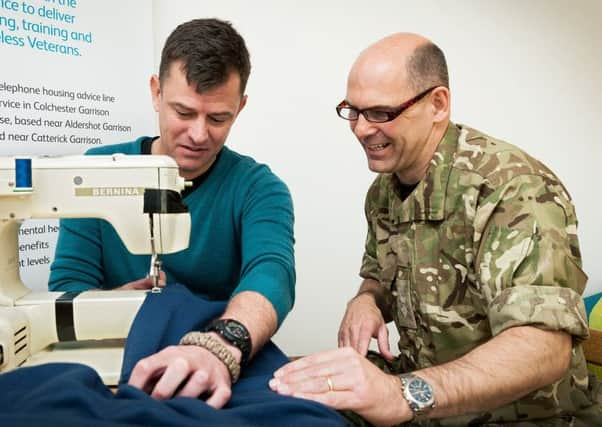Ministers accused of passing the buck in mental health crisis


The latest figures for mental health inpatient care released yesterday revealed that admissions and discharges fell by nearly a fifth in 2013-4 compared to 2006-7.
On March 31 2014, there were 3,500 people resident in Scottish psychiatric hospitals, a decline of more than half since 1997-98.
Advertisement
Hide AdAdvertisement
Hide AdThe Scottish Government claims that the trend reflects the shift towards treating more people with mental health problems in a community setting, rather than admitting them to hospital.
Campaigners have railed against the findings, claiming the decline in inpatient treatment was adding to pressure on stretched social care resources, where patients are facing longer waits for talking therapy.
Billy Watson, chief executive of the Scottish Association for Mental Health (SAMH), said: “We are encouraged to see the continuing move from care and treatment in hospital towards community-based support. However, moving people out of hospital and into the community is only a viable option if the care provision is available to meet the needs of so many people, which, in our experience, is not always the case.
“Currently, community-based mental health services, mostly in social care, are facing significant cuts to funding from local authorities which will result in these services coming under pressure, to the detriment of maintaining and expanding further non-hospital based provision.”
Scottish Liberal Democrat health spokesperson Jim Hume MSP said it was “shameful” for the government to claim that progress had been made when they had simply shifted the problem on to the shoulders of community organisations.
He said: “It’s hard to take heart from the fall in admissions to mental health hospitals when we know more people are waiting longer for access to psychological therapies. This is only part of the problem caused by the reduction in psychiatric beds by a third since 2005.
“It’s shameful for the Scottish Government to claim progress for an issue that deals with people’s mental wellbeing which has not been resolved but just displaced.”
Nursing leaders echoed calls for greater investment in community services and called for support to reduce health inequalities, as the statistics revealed that more people were being treated for mental health problems in areas of social deprivation than in more affluent parts of the country.
Advertisement
Hide AdAdvertisement
Hide AdTheresa Fyffe, director of the Royal College of Nursing Scotland, said: “Many organisations that provide health support to the most disadvantaged people in our society are often subject to funding cuts.”
The rate of discharge in the most deprived fifth of the Scottish population was more than three times that of the wealthiest 20 per cent.
But Jamie Hepburn, minister for mental health, said that by spending £900 million, the Scottish Government had worked to increase access to psychological therapies and improve the prescribing of antidepressants.